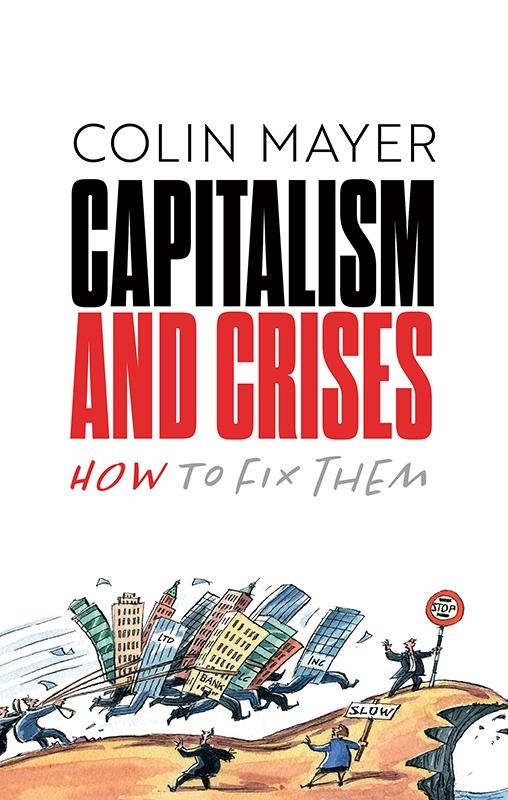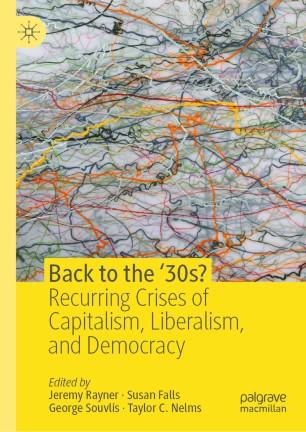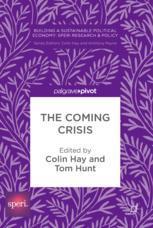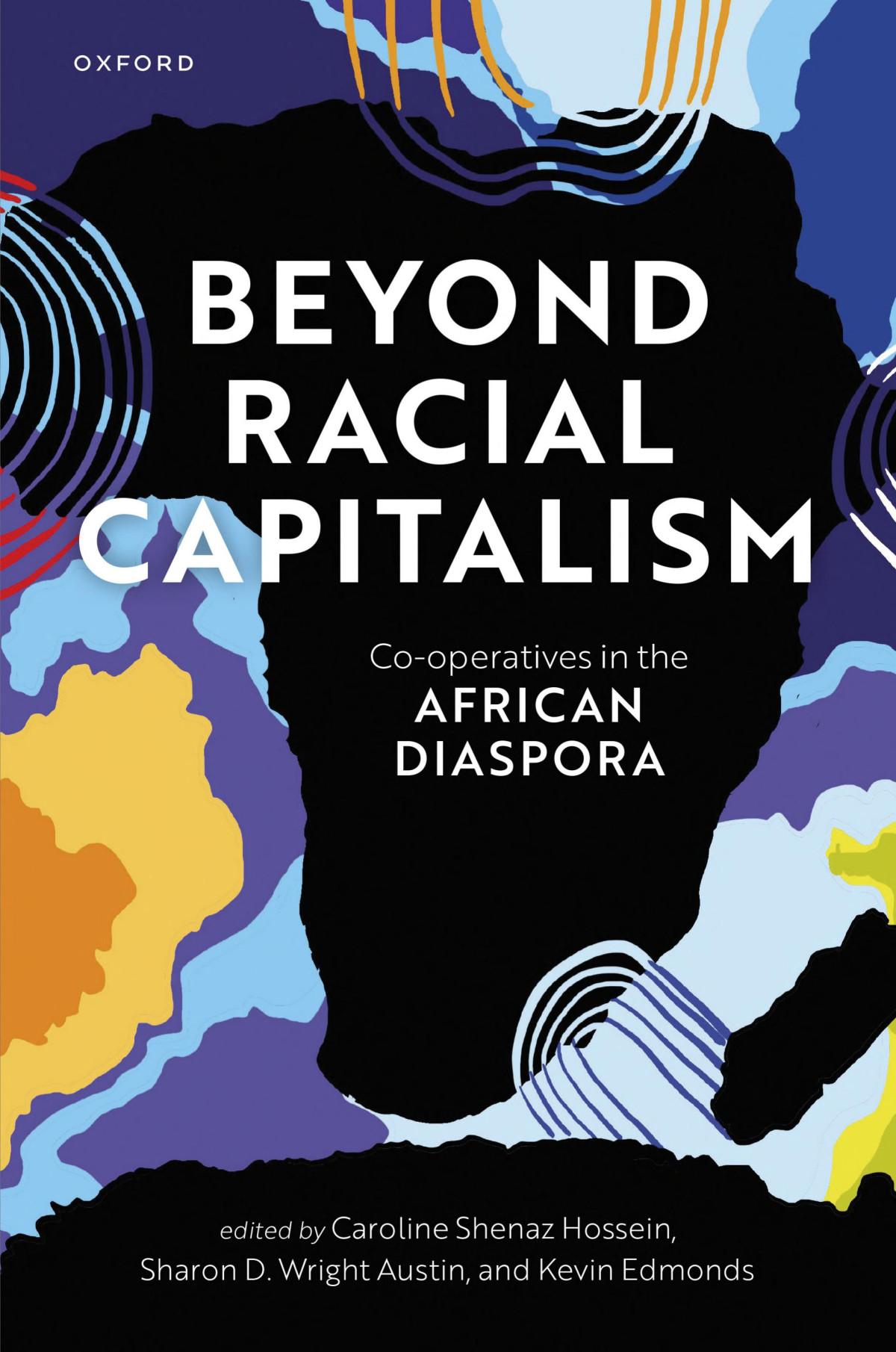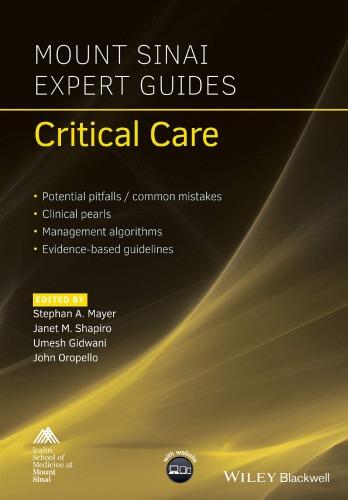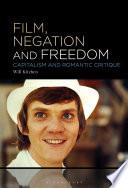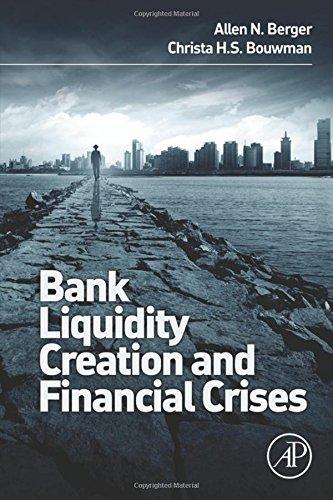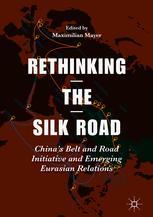Advance Praise for Capitalismand Crises
“Colin Mayer has been an influential voice in the debate about corporate purpose for many years. In this new book, he tackles the problem of how to rethink the entire capitalist system. His core argument – that we should seek to solve the problems of people and planet in a profitable way – is simple and profound. There are no easy fixes, but this important and carefully-argued book provides individuals, businesses and policymakers a practical route to progress.”
- Julian Birkinshaw, Vice Dean and Professor of Strategy and Entrepreneurship, London Business School
“The refrain throughout this remarkable book is solving problems for others and not causing problems for others. That is a theme that will resonate with entrepreneurs in early-stage companies who in my observation are passionate about solving problems. Drawing on rich wisdom from a career of helping firms to define and realise their purpose, Colin Mayer moves the agenda from companies simply maximising shareholder value to companies promoting wider prosperity. Everyone who wants to understand this transition and participate in it should read this.”
- Andrew Briggs, Emeritus Professor of Nanomaterials, University of Oxford
“In this ambitious and insightful book, Colin Mayer untangles some of capitalism’s intrinsic problems and offers some detailed proposals to tackle them. Moreover, he introduces the relevance of moral principles back into economics and business and develops the organizational architecture for corporate purpose. The outcome is a very compelling framework on how companies can be governed and managed, how investors should broaden their responsibilities, and how governments can contribute to more prosperous societies. Colin Mayer’s book makes a very unique and relevant contribution to the discussion on reinventing capitalism.”
- Jordi Canals, IESE Foundation Professor of Corporate Governance, IESE Business School
“Reviving Adam Smith’s real legacy, this book is a tour de force of one of the most astute thinkers of our time. Colin Mayer’s sophisticated and fascinating multi-disciplinary study harshly criticizes contemporary capitalism and develops the notion of problem-solving capitalism as an inspiring alternative. Combining learning and experience, integrity and courage, Mayer urges us to reform the way we conceptualize and regulate the financial system and, most fundamentally, the ownership and governance of firms. While his bold vision is radical, this insightful book shows that this ideal is also practical: firms can and should incur the full costs of the problems they create and profit only from the solutions they produce.”
- Hanoch Dagan, Professor of Law and Director, Berkeley Center for Private Law Theory, University of California Berkeley Law School
“This book is the culmination of thinking over a brilliant career, and it comes just in time. It provides profound but practical ideas for addressing the underlying issues that are creating an ongoing set of crises. The most pressing and overarching one in the U.S. is a culture war based on extreme political polarization. Professor Mayer’s book explains why this polarization exists and the transformation in capitalism he calls for should resonate on both the left and the right.”
- Robert Eccles, Visiting Professor of Management Practice, Said Business School, University of Oxford and Retired Professor of Management Practice, Harvard Business School
“This is a remarkable and profoundly insightful book on both the huge strengths of capitalism as a means of delivering what we want, but also its current massive failures. Based on a wealth of experience, the book is crystal clear in proposing how to transform the capitalist system so as to avoid such crises by a combination of systems thinking and a radical program of valuesbased action. This will promote human well-being and justice through a reformulated Golden Rule embodied in corporate law and governance. This important book is highly recommended.”
- George Ellis, Emeritus Professor of Complex Systems in the Department of Mathematics and Applied Mathematics at the University of Cape Town
“Mayer provides a compelling journey that documents the baleful consequences when business pursues profit as an end to itself rather than as
a means to address societal and ecological problems. He goes on to offer a roadmap to escape from this trap, including a welcome emphasis on the responsibility of the educational system to help shape a socially productive rather than destructive business system.”
- Geoffrey Jones, Isidor Straus Professor of Business History, Harvard Business School
“We are failing to address the now existential problems of people and planetour economies and our businesses are not currently designed to address these problems. Colin Mayer’s book is an important contribution to the debate about how to ensure that this design problem is addressed. It should also be a salutary reminder to all of us of the urgency to do so.”
- Colm Kelly,
Global Leader Corporate Sustainability, PwC International Ltd
“As Adam Smith was the Father of Capitalism in the 18th Century, Colin Mayer is the Grandson in the 21st Century, restoring Capitalism to its central and essential role in society today and in the future. Capitalism and Crises is the third book in the trilogy that is the foundation for the future study of Capitalism and for the adoption of laws and approved practices. It provides a clear, actionable, and timely roadmap for management teams and boards of directors to take into account their impacts on employees, the environment, customers, suppliers, and local and national communities. Meticulously researched, Capitalism andCrises is essential reading for business leaders and investment stewards seeking creative solutions for confronting the pressing corporate and societal questions of our time.”
- Martin Lipton, Founding Partner, Wachtell, Lipton, Rosen & Katz
“In Capitalism and Crisis, Professor Mayer has provided a master class in why we must, and how we can, reform our capitalist system. By suggesting a reformulation of the “Golden Rule” itself, he guides the reader to a new framework for the role of business in society. He provides provocative, inspiring, and motivational ideas. This book is for anyone interested in true system change.”
- Lynn Forester de Rothschild, Chief Executive of E.L. Rothschild LLC
Capitalism and Crises
How to Fix Them
Colin Mayer
Great Clarendon Street, Oxford, OX2 6DP, United Kingdom
Oxford University Press is a department of the University of Oxford. It furthers the University’s objective of excellence in research, scholarship, and education by publishing worldwide. Oxford is a registered trade mark of Oxford University Press in the UK and in certain other countries
© Colin Mayer 2024
The moral rights of the author have been asserted
All rights reserved. No part of this publication may be reproduced, stored in a retrieval system, or transmitted, in any form or by any means, without the prior permission in writing of Oxford University Press, or as expressly permitted by law, by licence or under terms agreed with the appropriate reprographics rights organization. Enquiries concerning reproduction outside the scope of the above should be sent to the Rights Department, Oxford University Press, at the address above
You must not circulate this work in any other form and you must impose this same condition on any acquirer
Published in the United States of America by Oxford University Press 198 Madison Avenue, New York, NY 10016, United States of America
British Library Cataloguing in Publication Data Data available
Library of Congress Control Number: 2023936000
ISBN 978–0–19–888794–2
DOI: 10.1093/oso/9780198887942.001.0001
Printed and bound by CPI Group (UK) Ltd, Croydon, CR0 4YY
Links to third party websites are provided by Oxford in good faith and for information only. Oxford disclaims any responsibility for the materials contained in any third party website referenced in this work.
Tomyparents, Whoexperiencedtheworstofcrises, Andthebestoftimes.
As the whistle blew and a guard closed the doors of the train, a young girl looked out at the figure of a woman on the platform waving to her. She waved back, trying to hold back her tears.
The train glided out of the station and passed through beautiful green fields, pastures, forests, hills, and terraced vineyards. At one point in the journey, the young girl rummaged in her handbag and found a thin silver necklace that she had been given for her 14th birthday and loved to wear. It was of little value, but she concluded that there was only one thing she could do.
She got up from her seat, made her way down the passage to the toilet, dropped the necklace in it, and watched as her early life was flushed away.
The train was nearing the border. She returned to her seat and her heart began to throb as she heard the customs officers coming down the train. The door of the carriage opened. A young official asked for her passport and inspected her bag. There was a slight tear in the lining and the official asked whether this was an accident. She mustered a weak smile. The official smiled back and returned her passport.
A few minutes later the train ground to a halt. They had crossed the border into Holland.
The girl was my mother. The woman at the station was my grandmother. The year was 1939. The girl was fleeing from Nazi Germany to refuge in Holland.
She was one of the lucky to escape.
Preface
As I write this book, the world is in crisis. No, scrap that—the world is in multiple crises. There is war in Europe, a drought, floods, a pandemic, an energy crisis, a food crisis, a climate crisis, and a crisis in our democratic and political systems. There was a financial crisis; there is now inflation and recession. No doubt by the time you read this there will be others.
Crises are increasing in frequency and growing in intensity. Their frequency and intensity will continue to increase until we solve the problem.
The problem is our capitalist system. It is a source of remarkable prosperity, growth, employment, and poverty alleviation. But it is also a cause of terrible suffering, disasters, inequality, environmental degradation, and social exclusion. And they are getting worse.
This book is about solving the problem. It is the third in a trilogy that I have written on what’s wrong. The first (Firm Commitment) was about the problem; the second (Prosperity) was about the solution. This is about the transformation—the fundamental change in our capitalist system needed to fix it.
The first book identified the absence of trust and commitment in a capitalist, market-driven system as the problem, the second purpose as the solution. This is about how to get us from where we are to where we need to be—the fundamental transformation from lack of trust and commitment to purpose.
The first two books laid the foundations for what has gone wrong, why, and what is needed—not a revolution but a reformation, learning from the future as well as the past—crafting our future in
the way in which we wish it to be, not being a slave to the past but a respecter of it.
The first book was about one of the most important institutions in our lives—business. The second broadened the horizon to economies and the law. This book extends the horizon to all our institutions and organizations—economic, legal, political, public, social, as well as commercial—and emphasizes that there are common approaches to bringing about the transformation required of all of them.
Key to appreciating this is to recognize our institutions and organizations as systems—as systems that need fundamental change to reboot them. This is not about meddling on the side-line with a few policy instruments, changing one or two things here and there. It requires a coherent, consistent set of policies to coordinate the necessary changes.
Equally, it is not about discarding or weakening what is good and what works. It is about strengthening and reforming existing structures so that they are fit for purpose for the twenty-first century.
They are not fit for purpose at present, suited to a minority, leaving the rest poor, disadvantaged, inadequate, excluded, and aggrieved. Our capitalist system has been the source of immense and unsustainable dissatisfaction that threatens our politics, societies, economies, and environment. We need to fix it fast.
That will not happen so long as it is not in people’s interest for it to happen. If it doesn’t make money for business and investors, then it is pie in the sky and wishful thinking. However much we may believe in the goodness of leaders, investors, communities, and societies, if it is not profitable, it is not possible. In fixing the system, we need to be realistic about what it takes to fix it properly.
Profit should be recognized for what it is—the driver of one of the most important institutions in our capitalist system—business. It is the reason why business exists, what it is there to do, its reason for
being, namely its purpose. Business exists to make money. Profit powers progress and progress produces prosperity.
But profit also produces problems of petrifying proportions and capitalism has become a cause of continuous and increasingly uncontrollable crises. Profit has been both a blessing and a curse and it has become increasingly a curse as the problems it creates have intensified. Why?
The answer is that profits come from causing as well as solving problems. Profits are earned at the expense as well as to the benefit of the environment, our health, homes, neighbourhoods, communities, and societies. They should not be. They should come from solving our problems, not creating them.
Business exists to make money and the purpose of business is to profit but the question that we have failed to ask is: where does that money come from—what is the source of that profit? If it comes from solving problems of others that is all to the good, if it doesn’t then it isn’t.
Profits should be the product of solving not producing problems and the purpose of business is to profit from producing solutions not problems for others. In other words, the purpose of business is to produce profitable solutions for the problems of people and planet, not profiting from producing problems for either.1 Profits then come, as they should do, from producing solutions not problems.
The importance of this is overwhelming. It is not just about saving our planet or protecting our health and wellbeing. More fundamentally it is about aligning our minds with our motives. The pursuit of profit has made our motives misaligned with our emotions of what it means to be human, and the morality of money has become an oxymoron. It need not and it must not be if capitalism is to be a cure not a cause of catastrophes.
Once profit is recognized for what it is, namely the product of solving the problems of others, then far from being misaligned, our emotional and reasoned motives are aligned with each other and
with the world around us. Profit derives from the resolution not the creation of problems and with that comes the power to harness global resources for the benefit of all, including the world itself.
There is another reason why this is so important. It is critical for the functioning of markets and economies. So long as people can profit at the expense of others then they will. Those who don’t will look stupid, naïve, sanctimonious, and self-righteous.
The corrosiveness of unjust profit should not be underestimated because profiting at others’ expense undermines those who do not wish to profit in that way. It contaminates competition and causes it to do exactly the opposite of what economics suggests it does— promote human wellbeing.
Some believe it impossible to have the nice bits of capitalism without the nasty—innovation without destruction; efficiency without redundancy; profit without problems. That misses the point. So long as the nasty is permissible, the nice will be impossible. The drive to innovation, efficiency, and profit is intensified not diminished by a focus on solutions without problems.
Preventing profiting from problems makes profiting from solutions the only course of action. It moves our minds as well as money not just to profit but to where profit is just. It creates justice as well as respects it. It is empowering, enabling, and enriching as well as caring, communal, and considerate.
Furthermore, while profit is naturally associated with business, it is relevant to all aspects of our lives, economies, governments, and societies. We should not accept that current generations profit at the expense of future ones, a country or region benefits to the detriment of another, one person or group prospers at a cost to another, or humanity flourishes from the extinction of the natural world.
These are examples of ‘unjust enrichment’—one party gaining at the expense of another. As capitalism has grown and powered ever greater prosperity, it has simultaneously intensified the scale of unjust enrichment that has occurred at the expense of individuals,
communities, societies, and the natural world. We should be protected from this and instead be enriched where we enrich.
But this is not just or predominantly about distribution of income and wealth between rich and poor. It is about contribution as well as distribution. It is about growth, development, prosperity, and flourishing; innovation, investment, finance, and risk taking. It is about promoting our individual and collective contributions to these because currently our capitalist system is doing exactly the opposite.
How can this be if profit is the engine of growth? The answer is that by mismeasuring profit we are misallocating all our resources— not just existing ones but also future and unforeseen ones. In principle our economic system is self-equilibrating in identifying profitable investment opportunities wherever they may be hiding —‘leaving no money on the table’ as it is often described.
Where opportunities are greatest so too is funding and the taps of capitalist finance flow to where their needs and benefits are largest. And if social needs exceed private benefits and markets fail to supply what is required, don’t worry the benevolent hand of government will rush in to fill the vacuum that private capital leaves behind.
If only. Unfortunately, that is exactly the opposite of what happens. Finance does not flow to developing or impoverished people, places, countries, or regions of the world. It is allergic to them and instead attracted by the developed and rich. Why? Because that is where the money is, and the purchasing power lies. It is not just grossly unfair but incredibly inefficient.
‘But that is not the role of the private sector—that is the role of government and public sectors’ is the predictable retort of those who fundamentally do not believe in government but rush to its defence when it is convenient to do so. In principle, it is the role of government to fill the vacuum, but in practice it does not.
Governments are no less and, in some respects, more prone to the same pressures as the private sector to go where the money is. They are by no means fully liberated from the constraints of funding
that restrict their less enlightened private counterparts—‘living within your means’ is the analogy that former UK Prime Minister Margaret Thatcher drew in justifying fiscal austerity in the 1980s.2
The problem is that we have fundamentally misconceived the whole system—private and public—both are driven by the wrong measure. I have called it profit because it is easy to grasp the inequity of profiting at the expense of others. But it applies to all forms of income—personal and corporate; public and private; individual and social; national and international. All of them are grossly mismeasured because we do not subtract the income that derives from producing detriments from that which comes from creating benefits.
To take an obvious example, much of our expenditure and income from pharmaceuticals and public health is simply reversing the damage done by expenditure and income from alcohol, cars, cigarettes, social media, and pollution. We are counting as income and wellbeing what derives from exactly the opposite.
But even that does not capture the real underlying cause of the problem. It comes from a confusion of cause and effect. We should not be pursuing the money but pursuing solutions to problems. We should be searching out where there are problems that you, me, our families, friends, communities, nations, and natural world face and we should solve them. We should all be doing that to our full capabilities.
And we should all be assisted and equipped in doing that because that is why we exist. As Plato in 387 bc Greece and then Cicero in 44 bc Rome reminded us, we exist to help others to be able to help others and, in the process, to earn and profit from doing so.3 But income and profit are not the motive or the purpose of our existence. They derive from it.
That is at the heart of why our capitalist system is going so awry. If we pursue money then we inevitably leave out the vast body of
the world, let alone the entire natural world, which does not have it. And don’t believe that it is just a matter of time—that all will be well in the long run. Those at the bottom of the pile need fear not because the trickle down of the treacle will eventually be within their grasp. Only it won’t.
It is not simply a problem that ‘in the long run we are all dead’ or even that ‘we will all be dead in the short run’, which on current trajectories we will be, but that in the short or long run the poor will remain poor, the deprived places will remain deprived, the rich will get richer, and the natural world won’t be on the map.
The system is not self-equilibrating. It is exactly the opposite so long as money is the objective, and wellbeing is derivative of its competitive pursuit, because those who haven’t got it are increasingly excluded from the game. Turn the objective round to promoting their wellbeing and money being the outcome and then the excluded are included by a combination of technological, business, social, and public innovations making it possible for them to be so.
That is why I talk about problem-solving and creation not just social wellbeing and welfare. We must be actively productive in addressing defects, not just reactively distributive in redressing them.
This comes from an appreciation that our problems derive from a deficiency in the fundamental moral foundations of not just Western civilizations and capitalism but indeed many civilizations around the world, namely the Golden Rule—‘do unto others as you would have them do unto you’. Enlightened as it appears, its consequences have been exactly the opposite. It has created polarization not unification, self-interest not common interest, a cult of individualism not communitarianism.
The reason is that it is self-referential. It tells us to recognize the world beyond ourselves and to act according to the interests of others, but to do so through the lens of our own not their eyes. It
imposes our not their preferences and priorities on our conduct towards them. I do to them what, were I them, I would wish them to do to me.
In contrast a reformulated Golden Rule of ‘do unto others as they would have done unto them’ requires us to regard and act towards others in a form that recognizes and respects them for who and what they really are and want to be—benefit yourselves from doing to others what truly benefits them. It is more demanding on us (and that may explain why it was not expressed that way) but its application is transformational in how we live our lives and run our institutions and organizations.
Where did we go wrong? The answer is right at the beginning. The capitalist equivalent of the Messiah came to Earth in the guise of Adam Smith. He delivered us our capitalist learnings. But we only read half of them. It was as if we forgot to turn over the tablet of stone and failed to read what was on the other side.
It was what I did in the first exam I ever took at school. The last question on the exam page was a list of abbreviations, e.g., ‘e.g.’, which I was expected to explain. I could do all of them except the last one which was ‘PTO’. I had no idea what it meant, so I didn’t, failed to turn over the page, omitted half of the exam, and failed it!
Well, we have done the same with Adam Smith, only in reverse order. We have avidly consumed his second book, The Wealth of Nations, while conveniently forgetting its predecessor TheTheoryof MoralSentiments. So, we have willingly accepted the story that ‘get rich quick’ helps to promote markets that temper our avaricious greed but failed to attend the previous lesson on the moral preconditions that are required for this to work, and without which markets far from being benign become perniciously malign.
With the emergence of capitalism came the division between left and right in politics and in particular the distinction between public and private ownership of the means of production.4 For the left, the obvious resolution to the problem of public interest was public
ownership. For the right, the obvious problem with public ownership was private interest. For those in the middle, no one was interested in owning their problems.
And there is the nub of the problem. Ownership is not about owning the means of production—the assets—but owning the problems those assets are there to solve. No one owns most of the assets used in production and no one at present takes ownership of the problems they create.
We shouldn’t start with the ownership of assets and fix the problems that causes. Instead, we should start from the ownership of problems and then determine the assets needed to fix them. That, amongst other thing, corrects the failure of macroeconomic austerity to invest in the human capability and physical capacity required to address inequality in opportunity and income.
This book describes how to achieve the required transformation of our world by recognizing the reason why we exist and what that implies for all aspects of our lives and institutions. Is it feasible and practical or wishful thinking to expect this to happen? Not only is it possible it is simply good management, sound policy, and best practice in private, public, and philanthropic sectors.
It does not require a change in corporate law. It is the basis on which corporate law in some parts of the world can be interpreted and corporate success can generally be assessed. It is precisely the way in which at least one country, Denmark, with one of the highest levels of income per capita, lowest levels of inequality, and highest indices of happiness in the world is run.
This is not wishful thinking, but it is thinking that starts from what we want and works back to how to get there. Don’t just take what is as given and immutable. We have created our capitalist system and we have the potential to mould it in the form in which we wish and need it to be.
That is exactly what this book does. Firm Commitment identified lack of commitment and trust as the problems to be solved,
Prosperity purpose and prosperity as the solutions. This book is about problem-solving and profits to fix capitalism and its crises. It begins by describing where we are, how we got here and the problems that have arisen as a result. It sets out the principles that should determine where we are aiming and want to be.
It then turns to how to go from here to there, and the systems change—the laws, ownership, governance, measures, performance, finance, and investment—required to get us there. It provides a coherent and practical programme of reform which takes what we have and describes what should change to deliver what we need and want. If we can do this then far from the cataclysmic collapse that many fear, the twenty-first century will deliver unimaginable rewards for the many not the few, for the future as well as the present.
The book has been guided by the circumstances and experiences of the last few years as the coronavirus pandemic subsides, the Russia–Ukraine war rages, the climate crisis grows ever more alarming, and governments of Western democracies become even more dysfunctional. What these events reveal is an intense vacuum of the global leadership the world so desperately needs.
We have created a system that promotes self- over common interest, ideology over pragmatism, profit over purpose, nation states over global concerns. We have lost sight of where we are going, how we should get there, and how collectively and collaboratively we can address the immense and growing problems we face.
Towards the end of writing this book, I underwent two cataract eye operations. The remarkable feature of such operations is their power to transform how one sees the world. But so too can ideas, and while eyes last no longer than their owners, ideas can endure for ever. Come with me as I explain how a few simple ideas may yet help us to restore our faith in humanity and its capitalist system.
Colin Mayer Oxford
31 January 2023
Acknowledgements
As with the previous books, this one draws on an immense amount of research and research programmes. Many of those mentioned in Firm Commitment and Prosperity have continued to play an important role in this one. In particular, I have drawn extensively on work done on the Future of the Corporation programme at the British Academy; the Ownership Project at the Said Business School at the University of Oxford; the Rethinking Performance programme at the Said Business School; the Mars Inc./ Said Business School programme on Mutuality in Business (the Economics of Mutuality); the Enacting Purpose Initiative at the Said Business School; the Regeneration of Left-Behind Places and the Foundations of Values and Value programme at the Blavatnik School of Government at the University of Oxford; the Purposeful Company programme in London; and the Scottish Government Business Purpose Commission —all programmes that I have led or co-led over the past eight years.
I have also drawn on my experience as an Ordinary Member of the Competition Appeal Tribunal in London; a founder and director of Aurora Energy Research Ltd and Oxera Economic Consultancy Ltd, now some of the largest and most significant companies in their fields; a member of the International Advisory Committee of the Securities and Exchange Board of India (SEBI); a member of the UK Government Natural Capital Committee, a Trustee of the Oxford Playhouse; the first Professor and then Dean of the Said Business School at Oxford; a founder, fellow and board member of the European Corporate Governance Institute (ECGI) and the Global Corporate Governance Colloquium (GCGC); a fellow and director of
the Financial Economics programme at the Centre for Economic Policy Research (CEPR) in London; and a professorial fellow and Sub-Warden of Wadham College, Oxford.
I would like to thank Amar Bhide, Andrew Briggs, Ruth Chang, Paul Collier, Luis Correia, Robert Eccles, Fuat Ecer, George Ellis, Markus Gabriel, Thomas Hellmann, Cameron Hepburn, John Hicklin, Will Hutton, Martin Lipton, Annette Mayer, Hannah Mayer, Anette Mikes, Andrew Mountfield, Andrea Polo, Dennis Snower, Leo Strine, David Tuckett, Peter Tufano, Ira Unell, David Vines, Rupert Younger, and two anonymous referees for very helpful comments on drafts of the book. I would like to thank Adam Swallow, Commissioning Editor for Business and Economics at Oxford University Press (OUP), for his continuing support and assistance with the publication of this third volume in the series, and Phoebe Aldridge, Project Editor for Social and Behavioural Sciences at OUP, for steering it through the production process. I would also like to thank the Blavatnik School of Government in Oxford for hosting me as a visiting professor while I wrote this book.
I am very grateful for the numerous research funds that financed the research which lies behind the book. I would particularly like to mention the funders of the British Academy Programme on the Future of the Corporation; the funders of the Enacting Purpose Initiative at the Said Business School; the ESRC funding of the NIESR Rebuilding Macroeconomics, Decentralized Reciprocity Programme; the European Union’s Horizon 2020 Research and Innovation Programme, Marie Skłodowska-Curie grant; the Ford Foundation funding of the Ownership Programme at the Said Business School; Mars Inc./Economics of Mutuality Foundation funding of the Mutuality in Business Programme at the Said Business School; the New Institute Hamburg funding of the Foundations of Values and Value Programme at the Blavatnik School of Government; Oxford Martin School funding of the Regeneration of Left-Behind Places Programme at the Blavatnik School of Government; and
funding from consortium members of the Oxford Rethinking Performance Initiative at the Said Business School. I am also grateful for the advice of the advisory and steering committees of the British Academy Future of the Corporation programme, the Oxford Enacting Purpose Initiative, and the Ownership Programme.
I have benefited immeasurably from all the friends and colleagues with whom I have worked over many years, in particular, in addition to the ones mentioned above, John Armour, Richard Barker, Lilian Barratt, Ian Bateman, Marco Becht, Bill Blair, Isabella Bunn, Clare Chapman, Jennifer Corbett, Paul Davies, Alex Edmans, Jeremy Edwards, Luca Enriques, Teppo Felin, John Feddersen, Julian Franks, Leo Goldschmidt, Jeff Gordon, Tom Gosling, Dieter Helm, Cecilia Heyes, John Hood, Jay Jakub, Tim Jenkinson, John Kay, Valerie Keller, Robin Knowles, Bridget Kustin, Mary Johnstone Louis, Georgina Mace, Philip McCann, Hideaki Miyajima, Sudhir Rama Murthy, Denis Noble, Ryo Ogawa, Paul Polman, Henry Richards, Bruno Roche, Kate Roll, Peter Roth, Jacob Schumacher, Tom Simpson, Judith Stroehle, Steen Thomsen, Gareth Williams, Kathy Willis, and Amir Amel Zadeh. I am also grateful for invitations from organizers of literally hundreds of summits, conferences, lectures, seminars, workshops, and webinars around the world to present, discuss, and test the ideas in this book.
The main burden of writing a book is obviously borne by one’s family and I am extremely grateful for their, and especially Annette’s, unfailing support during the process. While we work to live, we don’t just live to work. I have said that this is my final book on the subject, so this must be the last word.
Introduction
PART I. THE PROBLEM
1. The System
2. The Challenge
PART II. THE DUTY
3. The Moral Law
4. The Role of Law
PART III. THE METHOD
5. Owning the Problem
6. Leading Solutions
PART IV. THE PRIZE
7. Valuing the Invaluable
8. Just Profit
